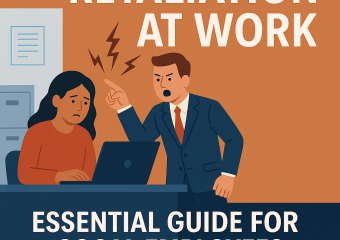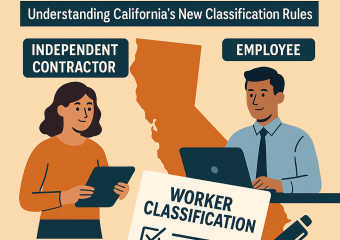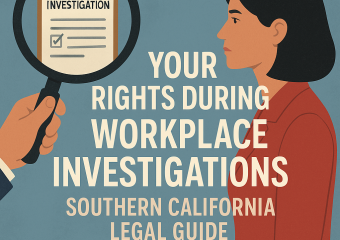Workplace Law Guide and Tips for Southern California
Navigating Workplace Law in Southern California
Handling workplace law in Southern California can feel like navigating a complex maze. With its unique legal landscape, staying informed about your rights as an employee is crucial. Whether you’re a recent entrant into the job market or a longtime employee, understanding these nuances can protect you from potential injustices and empower you to handle disputes confidently.
Understanding Basic Employment Rights
Southern California employees are covered under both federal and state laws, which offer protections ranging from anti-discrimination policies to wage and hour regulations. At the state level, California is known for having more stringent labor laws in comparison to other states, which provide broader protections for employees.
For instance, the minimum wage in California is set higher than the federal minimum wage, and the state enforces strict rules about overtime payment. Employees in California are entitled to overtime pay of 1.5 times their regular rate for any hours worked over 40 in a week or over 8 hours in a day.
Anti-Discrimination Laws and Workplace Equality
One major area of law where Southern California workers are particularly protected is in anti-discrimination. Under state law, employers are prohibited from discriminating against employees on the basis of race, color, national origin, ancestry, religion, sex (including pregnancy), sexual orientation, marital status, age, disability, or veteran status.
In instances of discrimination or harassment, it is important for employees to understand the proper channels for complaints. Typically, this involves reporting the incident to your supervisor or human resources department. If the issue is not resolved internally, you may need to file a claim with the California Department of Fair Employment and Housing (DFEH) or the Equal Employment Opportunity Commission (EEOC).
The Role of Leaves of Absence
California also leads the way with progressive laws regarding leaves of absence. Employees statewide can avail themselves of various types of leave, including but not limited to, family and medical leave under the California Family Rights Act (CFRA) and pregnancy disability leave. These statutes are designed to ensure that employees do not have to choose between their health and their job.
Moreover, in the wake of COVID-19, additional protections and leaves have been established to accommodate employees who are affected by the pandemic, further showcasing the state’s commitment to worker protection in extraordinary circumstances.
Understanding Wage Laws and Employee Classification
It’s vital for workers in Southern California to understand the laws surrounding wage and hour obligations. Issues often arise regarding unpaid overtime, misclassification of employees as independent contractors, and minimum wage violations. Knowing your classification and the corresponding rights is integral to ensuring you receive fair compensation for your labor.
Misclassification can lead to a loss of benefits and protections like overtime pay, workers’ compensation, and unemployment benefits. California’s Assembly Bill 5 (AB 5) established stricter criteria for determining who is an independent contractor, aiming to curb the misclassification of employees.
Seeking Legal Help
When it comes to conflict or uncertainty in the workplace, seeking legal advice can be vital. Employment lawyers specialize in workplace law and can provide guidance that is tailored to individual cases. They can help interpret complex legal information and represent your interests in disputes or negotiations.
Conclusion
Maintaining awareness of your rights under workplace law in Southern California not only helps in protecting yourself but also empowers you to advocate for a fair working environment. By staying informed and proactive, employees can ensure they navigate the complexities of workplace law effectively. Whether through self-education, human resources, or legal counsel, taking the initiative to understand these laws will pave the way for a healthier, more productive professional life in Southern California.




